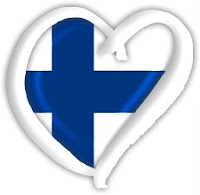L'Autriche à l'Eurovision
L'Autriche est apparu fréquemment à l'Eurovision Song Contest.
Le pays a gagné une fois, en 1966, avec la chanson «Merci Chérie».
Et une fois en 2014 avec Conchita Wurst et sa chanson "Rise like a Phoenix"
Ces dernières années, l‘humour a été la tendance des entrées autrichiennes, en contraste avec les succès dance-pop des autres représentants.
En 2003 c’est le comédien Alf Poier qui chante «Weil Der Mensch zählt", une chanson sur les animaux de la ferme.
En 2005 on a vu un spectacle du groupe folklorique « Kryner » interprétant une chanson a l’inspiration latine « Y así».
Ce fut la première apparition de l'Autriche dans la demi-finale, et le pays a échoué à se qualifier pour la finale.
Après une absence de trois ans, l'ORF a annoncé le 28 Juillet 2010 que l'Autriche serait le retour à la compétition en 2011, où Nadine Beiler qualifiés dans les demi-finales, a terminé 18éme en finale.
Austria at Eurovision
Austria has Frequently Appeared at the Eurovision Song Contest.
The country has won once, in 1966, with the song "Merci Chéri."
Ces dernières années, l‘humour a été la tendance des entrées autrichiennes, en contraste avec les succès dance-pop des autres représentants.
En 2003 c’est le comédien Alf Poier qui chante «Weil Der Mensch zählt", une chanson sur les animaux de la ferme.
En 2005 on a vu un spectacle du groupe folklorique « Kryner » interprétant une chanson a l’inspiration latine « Y así».
Ce fut la première apparition de l'Autriche dans la demi-finale, et le pays a échoué à se qualifier pour la finale.
Après une absence de trois ans, l'ORF a annoncé le 28 Juillet 2010 que l'Autriche serait le retour à la compétition en 2011, où Nadine Beiler qualifiés dans les demi-finales, a terminé 18éme en finale.
Austria at Eurovision
Austria has Frequently Appeared at the Eurovision Song Contest.
The country has won once, in 1966, with the song "Merci Chéri."
And one time in 2014 with Conchita Wurst and her song "Rise like a phoenix"
In recent years, Austria's entries Have Tended Towards the humorous, in contrast with the dance-pop Achieving Success.
2003 saw personality and comedian Alf Poier perform "Weil Der Mensch zählt", a song about farm animals.
2005 saw a performance by folk band Global Kryn singing the Latin-inspired "Y así". This Was Austria's first appearance in the semi-final, and the country failed to Qualify for the final.
After a Three year absence, ORF Announced on 28 July 2010 That Austria would return to the contest in 2011, Nadine Beiler Where qualified in the semi-final place in the 18th Gaining final.
Österreich in Eurovision
Österreich hat häufig in den Eurovision Song Contest erschienen.
Das Land hat einmal im Jahr 1966 mit dem Song gewonnen "Thank You Darling."
In den letzten Jahren hat Humor die Tendenz der österreichischen Einträge worden, im Gegensatz zu den Dance-Pop Erfolg der anderen Vertreter.
Im Jahr 2003 Alf Poier ist der Schauspieler, "Der Mensch zählt Weil," ein Lied über Nutztiere singt.
Im Jahr 2005 sahen wir eine Performance von Folk-Gruppe "Kryn" Interpretation eines Liedes al'inspiration Latin "Y Asi".
Dies war der erste Auftritt für Österreich im Halbfinale, und das Land nicht für das Finale qualifizieren. Nach einer Abwesenheit von drei Jahren kündigte die ORF 28. Juli 2010, dass Österreich den Wettbewerb im Jahr 2011, wo Nadine Beiler in das Halbfinale qualifiziert, beendet 18. in die endgültige Rückkehr.
1966 - Winner
In recent years, Austria's entries Have Tended Towards the humorous, in contrast with the dance-pop Achieving Success.
2003 saw personality and comedian Alf Poier perform "Weil Der Mensch zählt", a song about farm animals.
2005 saw a performance by folk band Global Kryn singing the Latin-inspired "Y así". This Was Austria's first appearance in the semi-final, and the country failed to Qualify for the final.
After a Three year absence, ORF Announced on 28 July 2010 That Austria would return to the contest in 2011, Nadine Beiler Where qualified in the semi-final place in the 18th Gaining final.
Österreich in Eurovision
Österreich hat häufig in den Eurovision Song Contest erschienen.
Das Land hat einmal im Jahr 1966 mit dem Song gewonnen "Thank You Darling."
In den letzten Jahren hat Humor die Tendenz der österreichischen Einträge worden, im Gegensatz zu den Dance-Pop Erfolg der anderen Vertreter.
Im Jahr 2003 Alf Poier ist der Schauspieler, "Der Mensch zählt Weil," ein Lied über Nutztiere singt.
Im Jahr 2005 sahen wir eine Performance von Folk-Gruppe "Kryn" Interpretation eines Liedes al'inspiration Latin "Y Asi".
Dies war der erste Auftritt für Österreich im Halbfinale, und das Land nicht für das Finale qualifizieren. Nach einer Abwesenheit von drei Jahren kündigte die ORF 28. Juli 2010, dass Österreich den Wettbewerb im Jahr 2011, wo Nadine Beiler in das Halbfinale qualifiziert, beendet 18. in die endgültige Rückkehr.
2003































